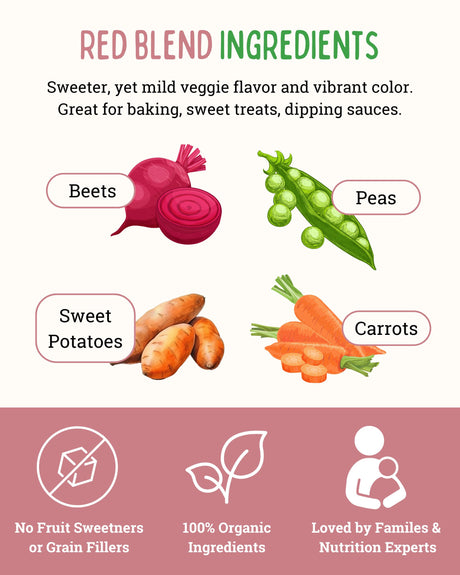From childhood, many of us have been met with the age-old refrain, "Eat your veggies!" It's not just a whimsical demand from parents or grandparents aiming to clear the plate. Behind those three simple words lies a profound truth about health and nutrition. Vegetables, with their diverse colors, flavors, and textures, play an indispensable role in crafting a balanced diet. They're not just side dishes to our main meals but pivotal contributors to our overall well-being, providing a rich tapestry of nutrients essential for our body's optimal functioning. As we delve into the repercussions of sidelining these nutrient powerhouses, let's remember why that familiar adage remains as relevant today as it ever was.
The Nutritional Powerhouse: What Vegetables Offer
Vegetables stand out as nature's veritable treasure troves of nutrition, brimming with a unique blend of vitamins, minerals, and phytonutrients that are often hard to find in other food groups. From the vitamin C in bell peppers to the calcium in dark leafy greens and the potassium in root veggies, these foods provide essential nutrients that fortify our bodies, support our immune systems, and contribute to bone and heart health. Beyond just vitamins and minerals, vegetables are also rich in dietary fiber, which aids in digestion, keeps our blood sugar levels stable, and promotes heart health. Additionally, the antioxidants and phytonutrients found in vegetables help combat oxidative stress, thereby playing a pivotal role in warding off chronic diseases. Simply put, every bite of a vegetable is a step towards better health, thanks to its potent combination of fibers, antioxidants, and unique nutrients.
Digestive Health: The First Casualty
When vegetables take a backseat in our diets, our digestive systems are often the first to raise the alarm. The intricate ecosystem of our gut thrives on the dietary fiber predominantly found in vegetables. This fiber not only ensures smooth bowel movements, preventing constipation, but also acts as food for our beneficial gut bacteria. A balanced gut flora is essential for nutrient absorption, immune system function, and even mood regulation. Without a regular intake of veggies, we deprive our bodies of this vital fiber, potentially leading to digestive discomfort, an imbalanced gut microbiome, and a cascade of related health issues. Emphasizing the importance of vegetables isn't just about getting essential vitamins and minerals; it's about fostering a harmonious environment in our digestive tract, setting the foundation for overall well-being.

Vitamin and Mineral Deficiencies: A Silent Scourge
Vegetables are nature's treasure troves, packed with essential vitamins and minerals pivotal for our overall health. When our plates are devoid of these colorful wonders, we run the risk of various nutritional deficiencies. For instance, a shortfall in Vitamin C, predominantly found in bell peppers, broccoli, and kale, can lead to weakened immunity, gum bleeding, and fatigue. Potassium, abundant in spinach and potatoes, when deficient, can disturb heart rhythms and affect muscle function. Magnesium, present in greens like Swiss chard and beet greens, plays a critical role in muscle relaxation, and its deficiency can cause muscle cramps, insomnia, and even anxiety. Furthermore, folic acid, a star nutrient in leafy vegetables, is essential for DNA synthesis, with its inadequacy potentially causing anemia and, in pregnant women, increasing risks of neural tube defects in infants. These silent deficiencies, if left unchecked, not only manifest in initial discomforts but can escalate to severe health complications in the long run. Regular consumption of a variety of vegetables is, thus, not just a dietary recommendation—it's a necessity for a life of vitality and wellness.
The Immunity Compromise
Nature, in its infinite wisdom, endowed vegetables with an arsenal of vitamins, minerals, and antioxidants, all designed to fortify our immune system and shield us from pathogens. Vegetables like bell peppers, broccoli, and spinach are teeming with Vitamin C, a powerhouse antioxidant that accelerates the production of white blood cells, acting as the body's first line of defense against infections. Dark leafy greens contain Vitamin E, another potent antioxidant that enhances immune functions, while garlic and onions offer compounds that exhibit natural antiviral and antibacterial properties. Without regular intake of these veggie warriors, our immunity sees a palpable dip, rendering the body more susceptible to common ailments like colds and flu, as well as heightened vulnerability to more serious infections. In an age where staying healthy is paramount, bypassing vegetables can be likened to skipping armor before a battle; it's an unnecessary risk that's easily avoidable with a plate full of vibrant veggies.
Cognitive and Mood Impacts
When it comes to the brain, vegetables play a pivotal role, often going beyond the scope of general nutrition. Vegetables like leafy greens, broccoli, and carrots are packed with antioxidants and nutrients like Vitamin K, beta-carotene, and lutein, which are instrumental in fostering cognitive health. These nutrients help in slowing cognitive decline and can be pivotal in preventing neurodegenerative diseases. Moreover, vegetables such as spinach, Brussel sprouts, and peas are rich in folate, a vital nutrient that aids in the regulation of mood and the reduction of depressive symptoms. It works by promoting the synthesis of serotonin and dopamine - neurotransmitters often dubbed as the 'feel-good' chemicals. By sidelining vegetables from our diet, we inadvertently rob our brain of these essential nutrients, potentially setting the stage for mood imbalances, heightened stress, and even cognitive impairments in the long run. In essence, a diet sparse in veggies doesn't just affect the body's physical wellness but can also cast shadows on one's mental and emotional well-being.
Increased Risk of Chronic Illnesses
A diet deficient in vegetables can have ripple effects on overall health, especially in increasing the susceptibility to several chronic illnesses. One of the most evident impacts is on heart health. Vegetables, rich in dietary fiber, potassium, and antioxidants, play a pivotal role in reducing blood pressure, lowering bad cholesterol, and thus curbing the risk of heart diseases. Moreover, the myriad of phytochemicals and antioxidants in vegetables, such as lycopene in tomatoes and sulforaphane in broccoli, have been linked to a decreased risk of certain cancers. These potent compounds neutralize harmful free radicals in the body, preventing cellular damage which can initiate cancerous growths. Additionally, the consistent consumption of fiber-rich veggies can help regulate blood sugar levels, potentially diminishing the risk of type 2 diabetes. Without these protective elements, the body becomes more vulnerable to these diseases. In essence, bypassing vegetables doesn't just lead to a deficiency in essential nutrients; it also invites a host of long-term health challenges that could have been preventable with a veggie-rich diet.
Combatting Veggie Aversion: Practical Tips
Confronting the great "veggie aversion" saga can often feel like an uphill battle for many parents. However, innovations in the food industry have paved the way for delightful solutions, such as veggie powders and blends. These ingenious products, like EasyPeasie Veggie Blends, act as a bridge to help fill the vegetable void, ensuring that children get the essential nutrients they might otherwise miss. Seamlessly integrating into a variety of recipes, these blends can elevate the nutritional profile of dishes without altering their beloved flavors. Imagine pancakes enriched with veggie goodness or smoothies with an added sprinkle of phytonutrients — all made possible by EasyPeasie. Beyond these blends, the key to fostering a veggie-friendly palate is starting early and making the experience enjoyable. From crafting vegetable characters on pizzas to orchestrating DIY salad stations, turning mealtime into an interactive escapade can slowly dismantle those vegetable barriers, setting the stage for a lifetime of healthier eating habits.
Final Thoughts
Vegetables, often pushed to the corner of the plate, hold unparalleled nutritional value that shouldn't be underestimated. From bolstering our digestive health to shielding our body from chronic illnesses, their role is pivotal. Sidelining them not only deprives us of immediate benefits like energy and vitality but also paves the way for latent health complications, some of which can have lifelong repercussions. As we close this exploration, let's remember that it's more than just about "eating our greens." It's about prioritizing our well-being and that of our loved ones. No matter where you are on your dietary journey, it's heartening to know that it's never too late to reintroduce these power-packed foods. With tools like EasyPeasie Veggie Blends, making this transition becomes all the more feasible. So, here's to embracing veggies and charting a path to a healthier future!













